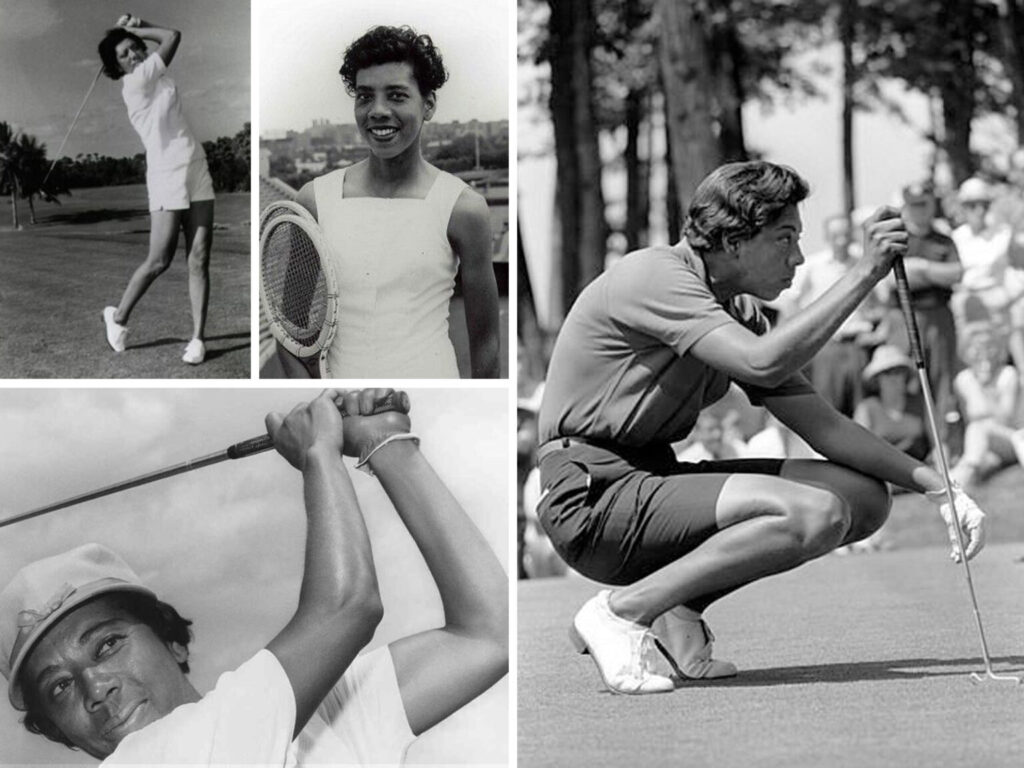
Althea Gibson (1927–2003) made history as the initial African American to triumph in a Grand Slam tennis event, securing the singles title at the French Championships (now known as the French Open) in 1957. Throughout her career, she claimed five Grand Slam singles titles. In 1967, she broke barriers once more by becoming the first African American woman to participate in the Ladies Professional Golf Association tour. Even after retiring from competition, Gibson continued to blaze trails, serving as the nation’s inaugural female state athletic commissioner in 1976.
In addition to her individual achievements, Gibson contributed to team victories. In 1957, she shared in the U.S. women’s team triumph at the Wightman Cup against the United Kingdom, earning the prestigious medal. Known for her participation in government-sponsored goodwill tours, Gibson was also honored with a medal during her visit to Pakistan.
Despite her remarkable achievements on the tennis court, financial struggles plagued her existence. Tennis remained an amateur sport during her era, leaving Gibson reliant on the goodwill of family, friends, and supporters to sustain herself. To augment her income, she embarked on a tour with the Harlem Globetrotters, showcasing her tennis skills before their games. Despite a brief stint with singing, including appearances on The Ed Sullivan Show and a role in the movie “The Horse Soldiers” alongside John Wayne, Gibson’s foray into music failed to yield financial stability.
In 1960, at the age of 36, Gibson pivoted to golf, a sport she had casually explored during her time at Florida A&M University. In her autobiography, “So Much to Live For,” she described the allure of golf as gradually overpowering, leading her to make history once more by earning entry into the LPGA Tour.
Renowned for her powerful drives and low ball flight, Gibson broke course records and achieved moderate success on the LPGA Tour. However, financial security remained elusive, with sponsorship deals and the support of her husband serving as her main sources of income. Despite her athletic prowess, Gibson confronted racial discrimination, particularly in the segregated South, where some clubs barred her from entering their premises during tournaments.
Despite her fame, Gibson was not shielded from the harsh realities of racism during her professional golfing career. The 1960s were marked by turbulence, with certain clubs, particularly in the South, refusing to accept her. One poignant incident occurred in 1965 at the Babe Zaharias Classic tournament held at the Beaumont Country Club, where Gibson was permitted to play on the course but barred from entering the clubhouse, even for basic amenities such as using the bathroom, compelling her to change in her car.
Lenny Wirtz, serving as the tournament director for the LPGA during the 1960s, played a crucial role in advocating for inclusivity within the tour. When host golf courses attempted to exclude black players by converting “open” tournaments into “invitationals,” Wirtz took a firm stance, declaring, ‘We all play, or we all stay away.’ His steadfast advocacy garnered unanimous support from LPGA members, who resolved that if a sponsor or club failed to accept all players, they would boycott the event. This united front demonstrated solidarity among LPGA players in support of their fellow athlete of color.
Despite these efforts, maintaining a presence on the tour proved financially burdensome for Gibson. After a 13-year career, she ultimately transitioned to a position as a tennis professional near her home in New Jersey. Over time, she withdrew from public life, grappling with ongoing financial and health challenges. Tragically, after years of adversity, Althea Gibson passed away in 2003 due to respiratory failure.

